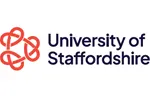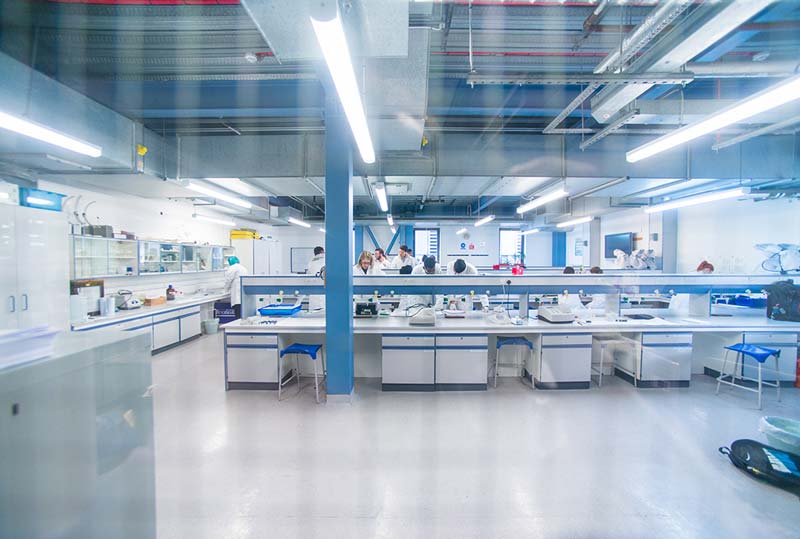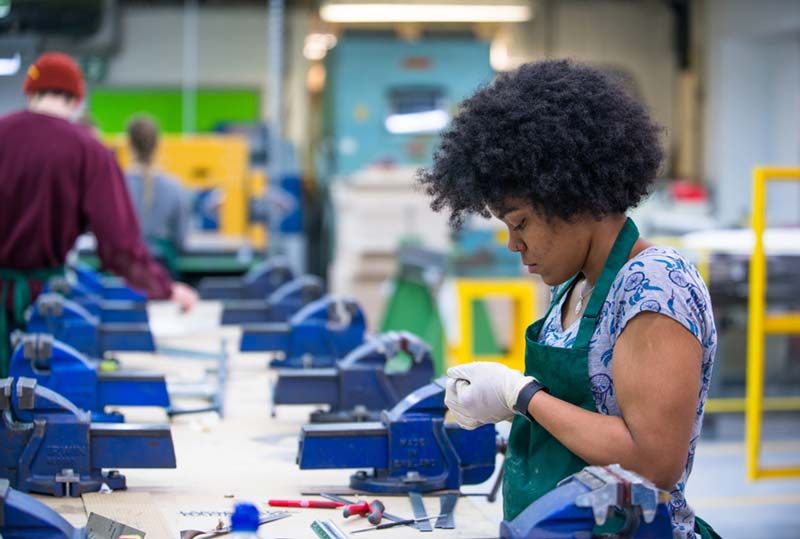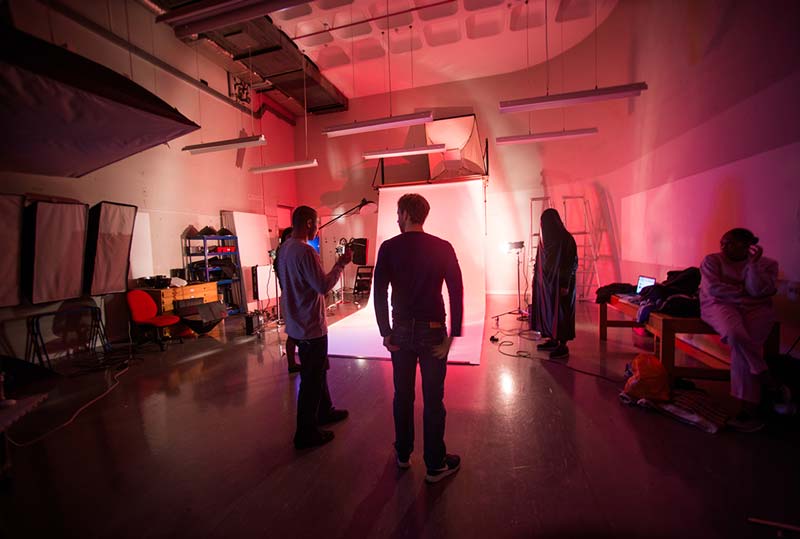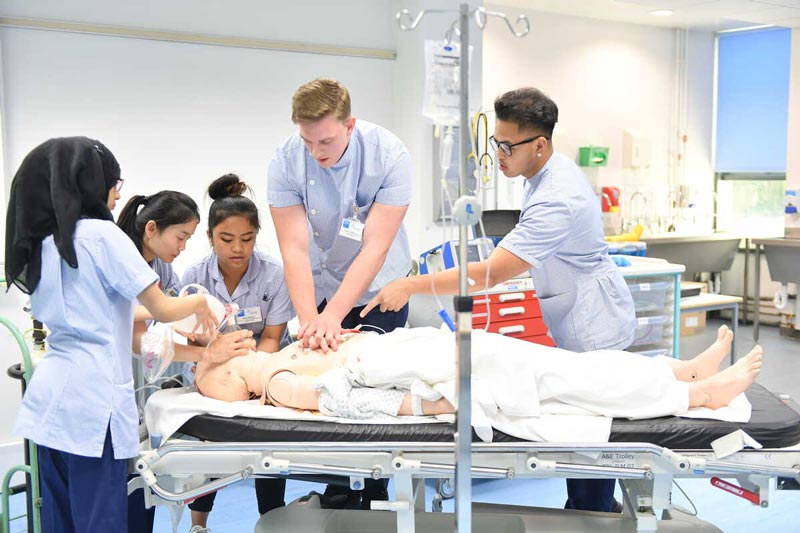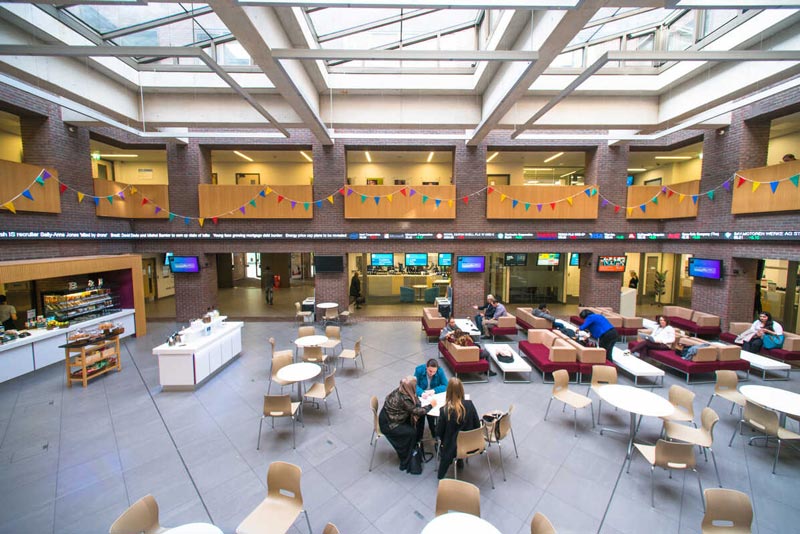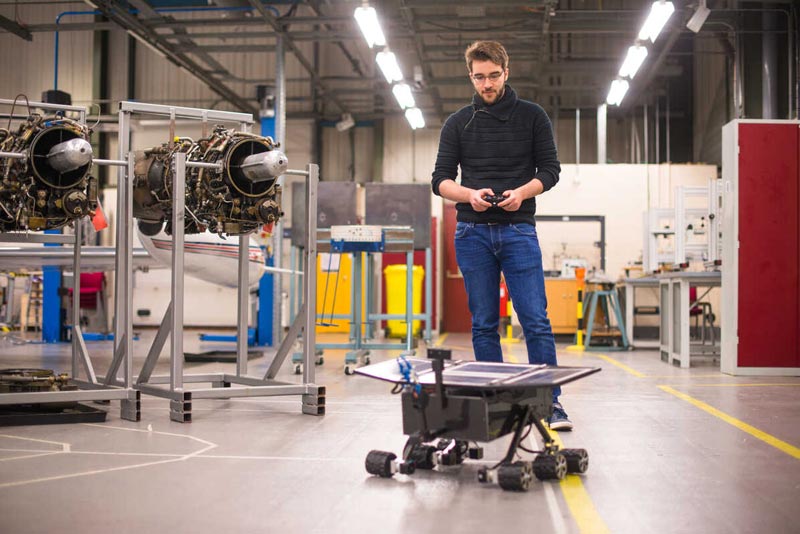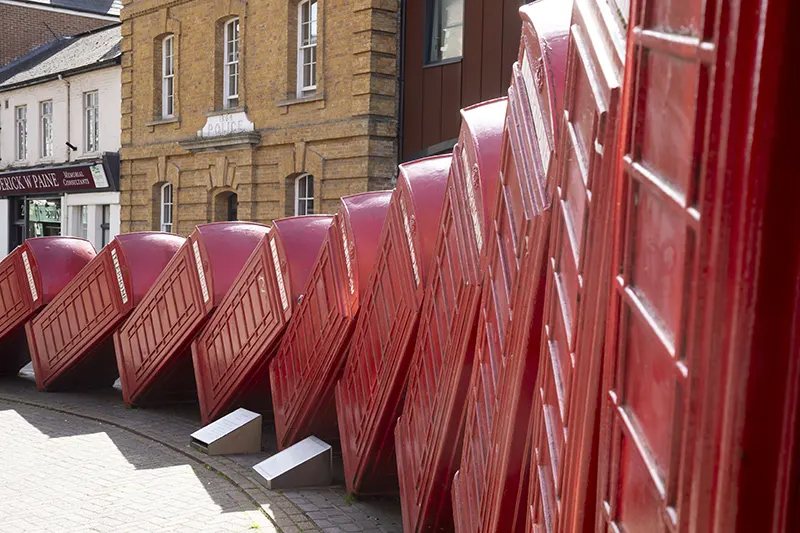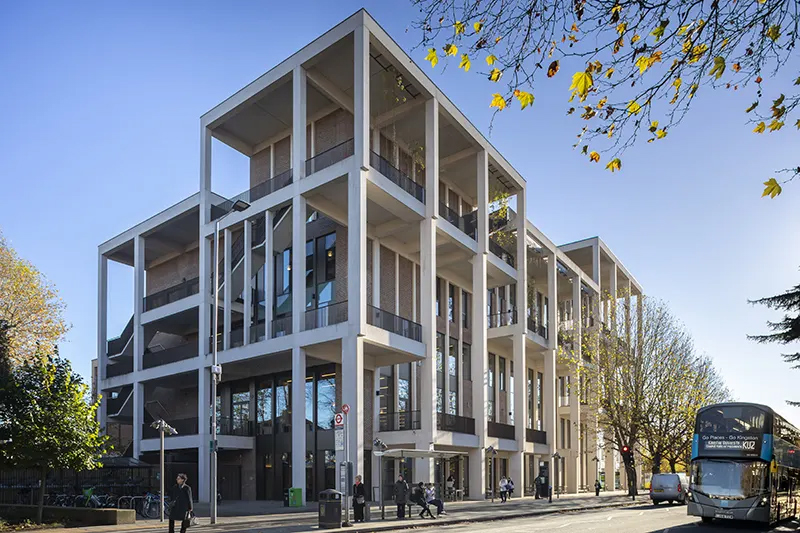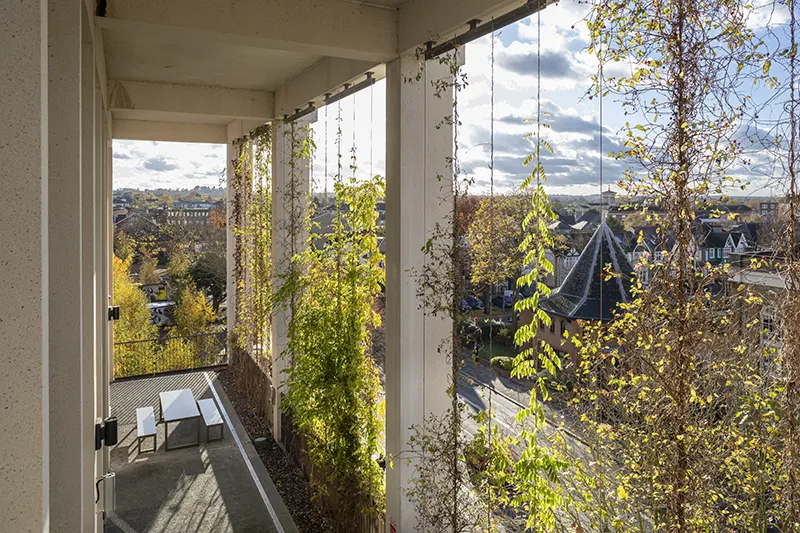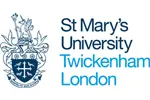Forensic Science (Analysis) examines the latest analytical, spectroscopic and separation techniques used in case studies.
Liquid Chromatography-Tandem Mass Spectrometry (LCMS/ MS) will be used in your toxicology analysis. You will also use Inductively-Coupled Plasma Mass Spectrometry (ICPMS), commonly used for environmental analysis, such as air pollution and water samples.
You will learn to investigate and analyse drugs of abuse, fibres and firearms and conduct fire and explosive investigations.
Forensic Science (Toxicology) offers in-depth training in pharmacology and analytical chemistry. You will study the biological effects and therapeutic uses of drugs, focusing on criminal and road traffic toxicology, and on drug testing in sport.
You will be able to put your investigative skills into practice with our scene-of-crime house, located on site. This is a real semi-detached house with five rooms and a garden containing various types of mock crime scenes, including burglary, arson, assault and sexual crime. Students have to pick up evidence and transport it back to the labs for preservation and analysis. The crime scene house is also used extensively to teach Bloodstain Pattern Analysis (BPA).
In addition, you will have the option to do a placement year in industry to put your research skills into practice in the real world. You are responsible for finding and securing your own professional placement, which can be highly competitive but also incredibly rewarding.
You will be taught by lecturers with wide experience as forensic scientists, expert witnesses and forensic research. Staff research includes the following themes:
- Analysis of trace materials from vehicles involved in road traffic accidents
- Fire investigation
- Drugs of abuse analysis (recreational and in sport)
- Lipstick contact analysis and Blood Pattern Recognition
- Forensic Archaeology and Anthropology
- Near Infra-Red Analysis
In addition, you will benefit from visiting guest speakers and industry visits. Recent trips include:
- a tour of the forensic labs at the Laboratory of the Government Chemist (LGC)
- a visit to Kingston Crown Court to see a trial



